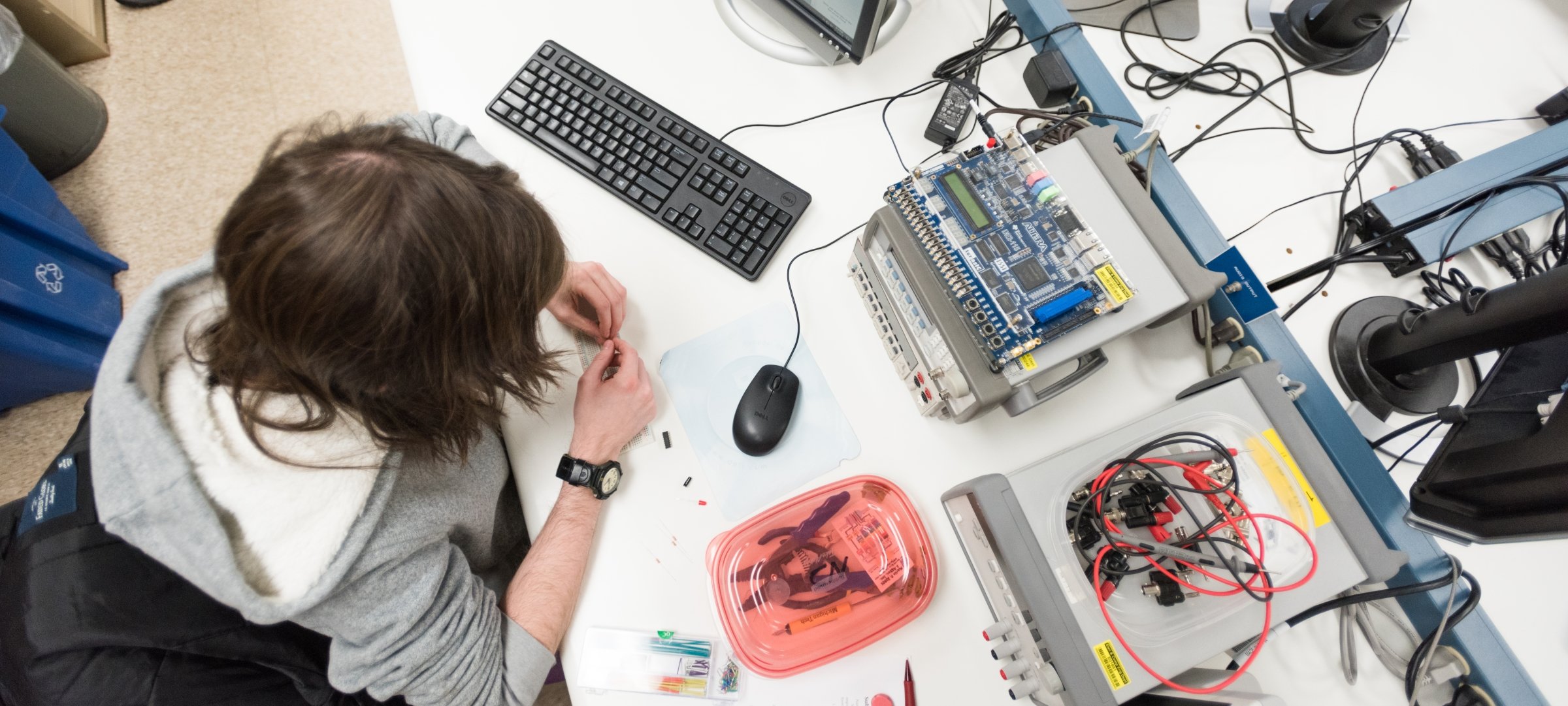The master’s in electrical and computer engineering is a rigorous interdisciplinary program that allows you to explore the intersections between electrical and computer engineering. Besides courses in electrical and computer engineering, take a flexible mix of engineering coursework from related fields, such as the physical sciences and computer science, to meet your educational and career goals. Work with your graduate academic advisor and faculty to tailor a program that fits your interests and needs. Acquire a depth and breadth of knowledge for a successful engineering career. Are you ready?
Accelerated Master's Program is available for current Michigan Tech students. Explore our Online Master's Program.
Program Overview
Learn about the connections between hardware, software, and the physical world. Pursue research in electrical energy systems, robotics, signal and image processing, communications, embedded systems, electro-magnetics, optics, and photonics.
Electrical and Computer Engineering Program Details
Choose a specific degree option or delivery type to learn more about the electrical and computer engineering program at Michigan Tech. For international students, Electrical and Computer Engineering is a designated STEM program.
On-Campus Programs
Online Programs
Additional Program Information
Want to learn more about electrical and computer engineering at Michigan Tech? Visit the department for more information:
Sample Areas of Interest
Select areas of interest to help customize your Electrical and Computer Engineering MS. Sample areas include:
- Automatic Control
- Nanotechnology
- Big Data
- Information Networks

